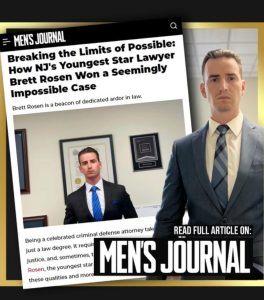Can a Cop Search My Car in Union County, NJ? Understanding Your Rights and Protecting Your Privacy
Warrantless Search of My Car in Union County, NJ

Can a Cop Search My Car in Union County, NJ?
A traffic stop in Union County, New Jersey, can quickly escalate from a minor inconvenience to a stressful situation, especially if the officer wants to search your vehicle. Knowing your rights and the legal limitations on police searches is crucial to protect your privacy and avoid potential legal complications. This comprehensive page delves into the complexities of vehicle searches in New Jersey, outlining when an officer can legally search your car, potential defenses if your rights are violated, and essential FAQs to empower you with the knowledge to navigate such encounters confidently.
The Fourth Amendment: Your Shield Against Unreasonable Searches
The Fourth Amendment of the U.S. Constitution safeguards individuals from unreasonable searches and seizures. This fundamental right protects your privacy and requires law enforcement to have a valid legal basis before searching your person or property, including your vehicle.
When Can a Cop Search My Car in Union County, NJ?
While the Fourth Amendment provides strong protection, there are specific circumstances where a police officer can legally search your car in New Jersey:
1. Probable Cause:
- The cornerstone of legal searches. An officer must have “probable cause” to believe that your vehicle contains evidence of a crime. This means they must have specific, articulable facts that would lead a reasonable person to believe that a crime has been, is being, or is about to be committed, and that evidence of that crime is present in your vehicle.
- Examples:
- Seeing drugs or weapons in plain view
- Smelling drugs emanating from the vehicle
- Receiving reliable information from a witness or informant
- Observing behavior consistent with criminal activity
2. Consent:
- If you voluntarily consent to the search, the officer can proceed without a warrant or probable cause.
- Consent must be freely and voluntarily given, without coercion or duress.
- You can limit the scope of the search or withdraw consent at any time.
3. Search Incident to a Lawful Arrest:
- If you’re lawfully arrested, the officer can search the area within your immediate control, including the passenger compartment of your vehicle, to ensure their safety and prevent you from accessing weapons or destroying evidence.
4. Inventory Search:
- If your car is impounded, the police can conduct an inventory search to document the contents of the vehicle for safekeeping and to protect both you and the police from claims of lost or stolen property.
5. Plain View:
- If an officer sees evidence of a crime in plain view from a lawful vantage point, they can seize that evidence and potentially conduct a broader search related to that evidence.
6. Exigent Circumstances:
- In emergency situations, such as when there’s a risk of evidence being destroyed or someone’s safety is in danger, an officer may conduct a warrantless search.
Protecting Your Rights During a Traffic Stop
- Remain calm and polite: Even if you feel your rights are being violated, it’s important to remain calm and respectful when interacting with law enforcement.
- Ask if you’re free to go: If the officer has completed the tasks related to the traffic stop, you can politely ask if you’re free to leave. If they say yes, you should leave calmly.
- Do not consent to a search: Unless you have nothing to hide, it’s generally advisable to politely decline a request to search your vehicle.
- Do not interfere with the officer: Do not physically resist or obstruct the officer, even if you believe the search is unlawful.
- Document the encounter: If possible, try to remember the details of the stop, including the officer’s name and badge number, and any statements made. You can also consider recording the interaction if it’s safe to do so.
Attorney Rosen’s Insight: It’s essential to remember that you have the right to refuse a search of your vehicle. However, asserting your rights effectively can be challenging in the face of law enforcement pressure. Having an experienced attorney can help you navigate these situations, ensuring your rights are protected and any illegally obtained evidence is suppressed in court.
Challenging an Illegal Search
If you believe your vehicle was illegally searched, an experienced attorney can help you challenge the search and protect your rights. Potential defenses include:
- Lack of probable cause: If the officer lacked probable cause to search your car, any evidence found during the search may be inadmissible in court.
- Invalid consent: If your consent to the search was not freely and voluntarily given, or if the search exceeded the scope of your consent, the evidence may be suppressed.
- Unlawful detention: If the officer unlawfully prolonged the traffic stop to conduct a search without justification, the evidence may be inadmissible.
- Violation of other constitutional rights: If the search violated other constitutional rights, such as your right to remain silent or your right to an attorney, the evidence may be suppressed.
FAQs
Can a police officer search my car if they smell marijuana?
In New Jersey, the smell of marijuana alone is no longer sufficient to establish probable cause for a search of your vehicle. The officer must have other evidence or observations to justify the search.
Can a police officer search my trunk during a traffic stop?
Generally, no. The officer needs probable cause or your consent to search the trunk, as it’s considered a separate compartment from the passenger area.
What if I’m a passenger in a car that gets searched?
As a passenger, you also have Fourth Amendment rights. If the search is unlawful, any evidence found may be inadmissible against you as well.
Can a police officer use a drug-sniffing dog to search my car?
A K-9 sniff around your vehicle is generally considered a minimally intrusive search. However, the officer must still have reasonable suspicion to justify using a drug-sniffing dog.
What should I do if I find illegal items in my car after a search?
Do not attempt to hide or dispose of the items. Contact an attorney immediately to discuss your legal options.
Contact Attorney Rosen Today!

Understanding your rights and the legal limitations on police searches is crucial to protect your privacy and avoid potential legal consequences. If you believe your vehicle was illegally searched in Union County, New Jersey, contact Brett M. Rosen, Esq., today. He will fight to ensure your rights are upheld and any illegally obtained evidence is suppressed.
Retaining Brett M. Rosen as your attorney if you believe a police officer violated your constitutional rights during a vehicle search in Union County, NJ, can be a strategic decision for several reasons:
Expertise in Constitutional Law
Brett M. Rosen is a seasoned trial attorney with extensive experience in both criminal cases. His deep understanding of constitutional law ensures that he can effectively argue violations of your Fourth Amendment rights, which protect against unreasonable searches and seizures.
Proven Track Record
Rosen has a history of successfully defending clients in complex cases. For instance, he has achieved favorable outcomes in high-stakes trials, demonstrating his ability to navigate the legal system and advocate for his clients. His success in these cases highlights his capability to handle serious allegations and constitutional issues.
Certified Criminal Trial Attorney
Brett M. Rosen is certified by the Supreme Court of New Jersey as a Criminal Trial Attorney. This certification is a testament to his expertise and commitment to maintaining high standards in criminal defense. It also means he has undergone rigorous testing and peer review, ensuring he is well-qualified to handle your case.
Remember: Your privacy matters. Don’t face these challenges alone. 908-312-0368 & brett@nynjcriminalcivilesq.com
